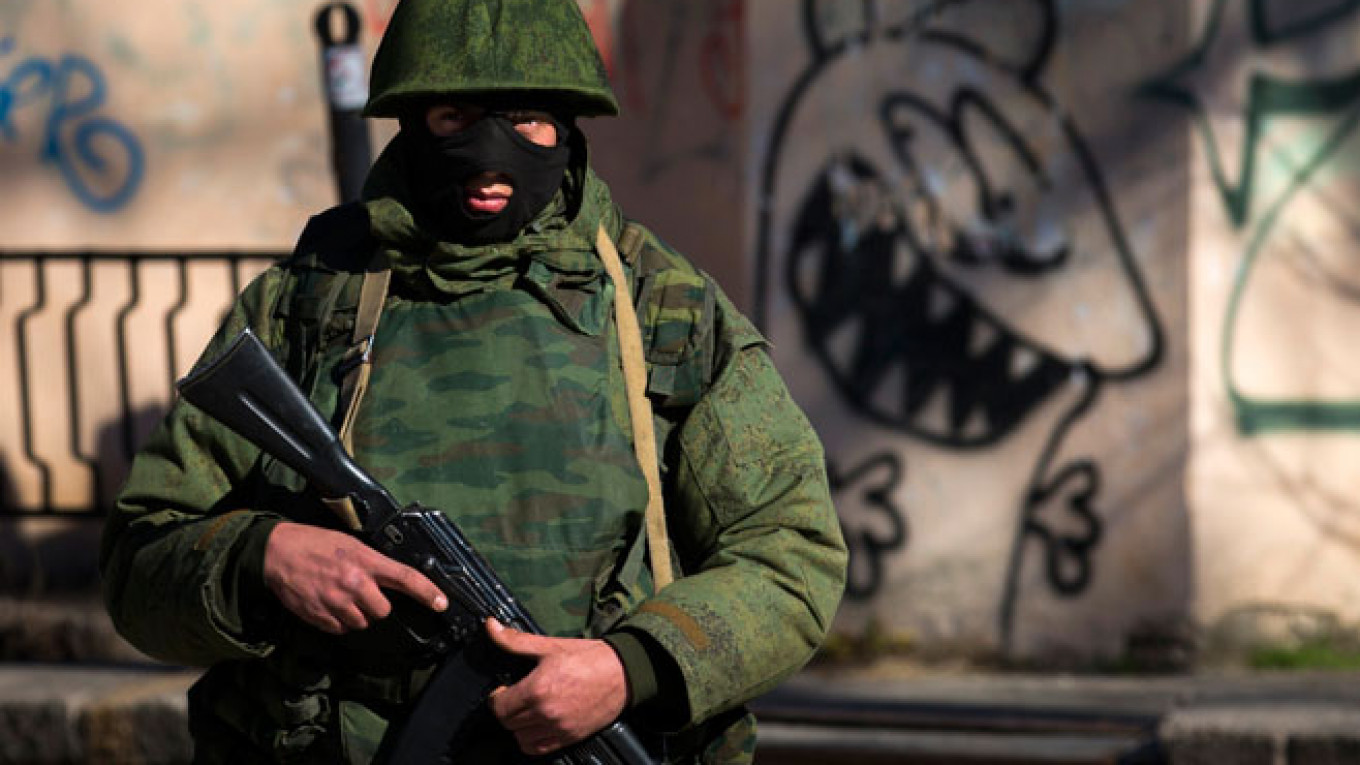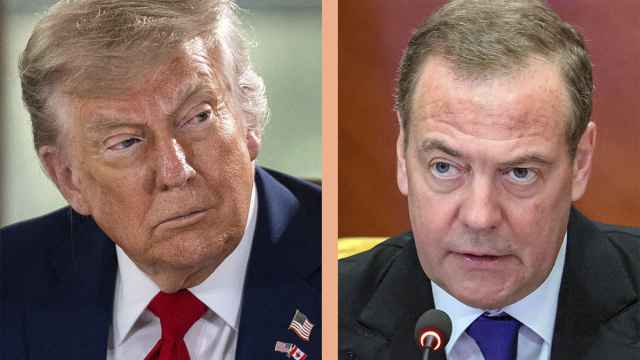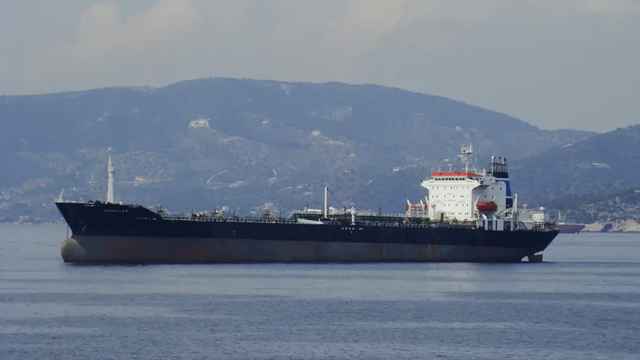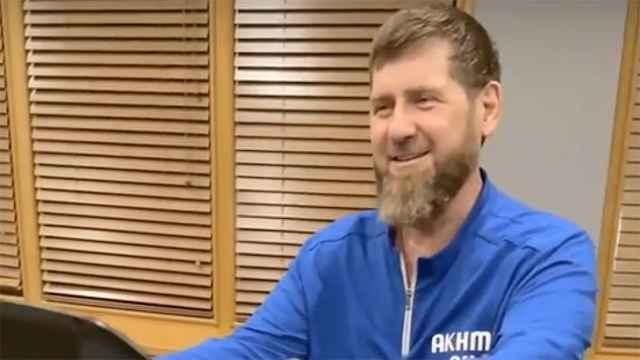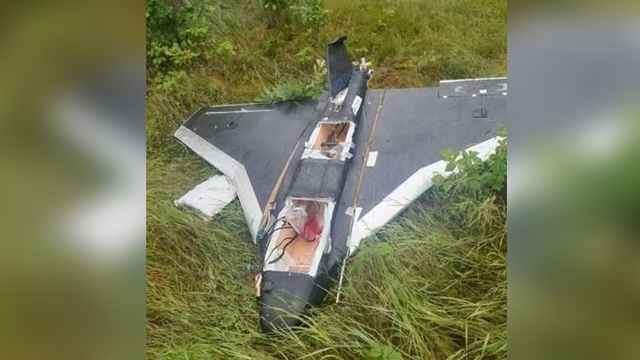SIMFEROPOL, Ukraine — The only place where you can see the Crimean peninsula from Russia is Port Kavkaz, a small harbor on the Kerch Strait, from where it takes only 20 minutes to get from Russia to Crimea by ferry.
From there, the two entities look as close as they can possibly be, but President Vladimir Putin wants them to be even closer. On Monday, in an attempt to solidify Russia's encroachment over Ukraine's only autonomous republic, Prime Minister Dmitry Medvedev signed an order to construct a $3 billion bridge over the strait.
"Aren't you afraid to go there?" cashiers, drivers and other passengers asked me when boarding the bus to Port Kavkaz in Krasnodar, the capital of the neighboring Russian region that less than 10 days ago hosted Winter Olympics in Sochi.
"Welcome home to Russia," Oksana Belyak, a bartender at a bar just after the passport control in Port Kavkaz told me while squirting ketchup on a hot dog, implying that Crimea is now native territory for Russian citizens.
"Ukrainians all run from there like rats from a sinking ship," she said. According to Belyak, many more people cross the border into Russia, while very few go back.
On Monday at dawn, there were very few people on the ferry to Crimea, though arriving in Simferopol, all of the hotels had been booked by journalists. It could not be verified whether swarms of people were heading in the opposite direction as well —– the ferry back was set to depart hours later.
Russian immigration officials have said that hundreds of thousands of Ukrainians had fled to Russia in pursuit of safe haven from extremists, which is how Russian officials have described the new government in Kiev. The claim has not been substantiated by solid evidence, however, with state-run Russian television displaying pictures of the crowded Ukrainian border with Poland instead of pictures from Ukraine's east.
On the other side of the Kerch Strait, arrivals are met with a few dozen soldiers that do not wear any insignia. At the same time, it is common knowledge here that they are Russian.
"Good boys," Anna Mohylevska, a resident of a central Ukrainian region of Vinnytsa, said in Russian once out of the Ukrainian passport control booth, speaking the only language heard in Crimea. The soldiers looked unfazed, saying that pictures can be taken only "if not posted on the web."
Mohylevska did not mind the photo restrictions but was quick to express her fury at Ukrainian authorities that formed the new government in Kiev.
"They are all bandits. Look at Tyahnybok. He is smart, but he is a Nazi scum. Klitschko just learned how to speak recently, Yanukovych is a thug and was never able to speak, while Yatsenyuk is educated but looks like a rabbit," she said sarcastically.
Her sentiments were quickly echoed by another passenger, Tatyana Vdovenko, a resident of Kerch in Crimea.
"I would be very happy if we become independent of Ukraine. Look at how strong Russia is, look at the Olympics," she said. What is accepted with enthusiasm in Crimea appears to be much more controversial in central Ukraine. For instance, Mohylevska said that she quarreled with her sister over the current political situation in the country. Her sister is a proponent of European integration for Ukraine, while for Mohylevska the only viable choice is the Russian-led Customs Union.
"What are we going to get in Europe? They will use us as cleaners, cooks and servants, nothing else!" she exclaimed.
Overall, people in Crimea spoke about potential war with a mixture of irony and despair.
"We have lived through so many of these disasters — financial defaults, breakups, wars — that now we have no emotions at all," said Andrei Mironenko, a middle-aged resident of Feodosiya.
On Sunday, Russian forces strengthened their hold of the Crimean peninsula and now effectively exert complete control of the region, according to U.S. officials. The move has provoked anxiety among many western governments, with top U.S. officials threatening isolation.
At the same time, Simferopol, the epicenter of what British Foreign Secretary William Hague called "the biggest crisis in Europe in the 21st century" looked peaceful and calm on Monday afternoon.
A few well-organized people chanted pro-Russia slogans in front of the parliament building that was recently the scene of a clash between Russia-supporters and mostly ethnic Tatar proponents of Ukrainian sovereignty in Crimea.
A Russian flag was flown over the building, but most other government buildings and schools in Simferopol have Ukrainian yellow and blue flags waving over them.
Many people are anxious and perplexed by the situation, it seems. At the time of writing this article in one of Simferopol's cafes, men in dark suits at the next table discussed how to leave the country and where to go — planning to head either to Moldova or Russia.
But as many point out here, you might not even have to leave Crimea in order to appear in another country.
For instance, on a bus from Kerch to Simferopol the driver asked a passenger to stop smoking, citing a certain provision of Ukrainian law.
"All laws have changed already," the smoking passenger said, adding, "We are Russia now," and continuing to smoke.
Contact the author at [email protected]
A Message from The Moscow Times:
Dear readers,
We are facing unprecedented challenges. Russia's Prosecutor General's Office has designated The Moscow Times as an "undesirable" organization, criminalizing our work and putting our staff at risk of prosecution. This follows our earlier unjust labeling as a "foreign agent."
These actions are direct attempts to silence independent journalism in Russia. The authorities claim our work "discredits the decisions of the Russian leadership." We see things differently: we strive to provide accurate, unbiased reporting on Russia.
We, the journalists of The Moscow Times, refuse to be silenced. But to continue our work, we need your help.
Your support, no matter how small, makes a world of difference. If you can, please support us monthly starting from just $2. It's quick to set up, and every contribution makes a significant impact.
By supporting The Moscow Times, you're defending open, independent journalism in the face of repression. Thank you for standing with us.
Remind me later.


